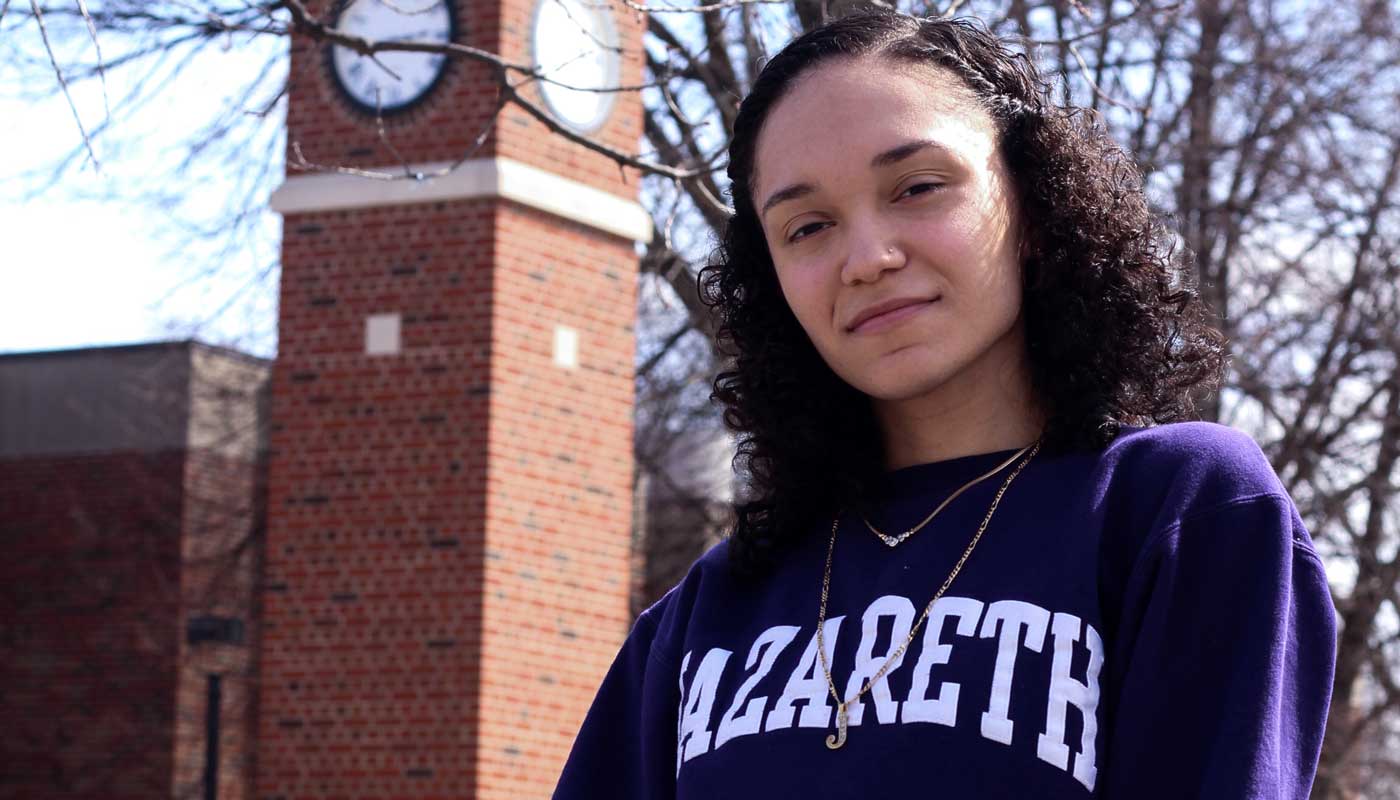The First in her Family
Joycelyn Rivas Appreciates First-Gen Support
By Jacquelin Janis ‘20G

Relatively few students from Joycelyn Rivas’ high school went to college, and it wasn’t clear that she would. Her parents didn’t complete high school. Rivas wanted to further her education, knowing it was important to becoming successful later in life.
Rivas, majoring in psychology with a minor in neuropsychology, is benefiting from a new initiative to support first-generation students.
Navigating the complicated FAFSA financial aid form, dealing with roommates, knowing how to dress for class, and appropriately answering emails from professors can all be challenges for first-generation students, more so than for peers with college-experienced families.
“More than 14% of undergraduate students at Nazareth identify as being first-generation,” says Rene Fuehrer, coordinator of First Generation Student Initiatives and a counselor for Student Access and Achievement programs. “We saw this as an opportunity to provide intentional support to this growing population. We understand some of the unique challenges that first-gen students may experience and we’re providing them with resources and support.”
Counselor can relate
As a first-gen student herself, Fuehrer can relate to the needs. “When I was an undergraduate student, I tried to navigate college on my own and was too embarrassed to ask for help. I wish I took the initiative to connect with staff and faculty.”
Nazareth’s new initiative under Culture, Community, and Belonging offers individual counseling to address students’ needs and workshops on topics that can be challenging for students to navigate alone. The program has been promoted with First to Fly gatherings to celebrate and support first-gen students.
Rivas says:
- Her parents have been supportive through pep talks and learning how to navigate new territory together. “My dad has always been my biggest cheerleader even when things seemed out of focus for me,” says Rivas.
- Fuehrer has helped both academically and emotionally. “She’s been an anchor for me when I felt like I was kinda drifting away,” says Rivas. Fuehrer, who has been working with Joycelyn since she was a first-year student, says, “First-gen students have a lot to offer the Nazareth community. I have found first-gen students to be hard-working, ambitious, and independent. They truly are a joy to work with!’
- Rivas adds that the campus community has been welcoming. “Sometimes support isn’t always walking you through things step by step, but it’s just a friendly face.”
A need to prove yourself
Rivas is determined to complete her degree. “There is something inside me that makes me feel like I need to prove myself. Failing for me is not an option. Being first generation means that if I were to begin, and not finish, not only am I letting myself down but I’m also showing my younger sister that it’s okay to give in when things get tough. I’m setting the tone for her journey into higher education and that’s something that I take very seriously.”
What it means to be a first-gen student
Rivas' view: “To me, being first generation means being willing to embrace the uncomfortable and find peace in your journey.”
Words of advice
“You’re not as alone as you think you are,” says Rivas. If you’re feeling overwhelmed in school, look around and see there are others struggling. There are so many people at Naz ready to help, she added. Take advantage of the support.
Update
Rivas graduated from Naz in 2020.
Update
After completing her bachelor's degree, Rivas went on to graduate school.
290+
Undergraduate first-generation students
Definition
At Nazareth, a student is identified as a first-generation college student if neither parent or guardian earned a bachelor's degree.